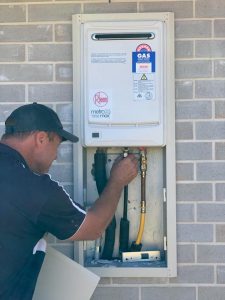Ways to Address the Common Water Heater Emergency Challenges
Ways to Address the Common Water Heater Emergency Challenges
Blog Article
Are you currently looking for information and facts concerning Common Hot Water Heater Problems?

A water heater is one of one of the most important standard appliances that can be located in a house. With hot water heater, you do not require to experience the stress and anxiety of home heating water manually whenever there is a need to take a bath, do the laundry, or the meals. There is constantly a possibility that your water heater would certainly act up as with the majority of mechanical devices.
It is necessary to note any little breakdown as well as tackle it rapidly before things get out of hand. Many times, your water heater begins to malfunction when there is a build-up of sediments as a result of constant use. As a precaution, periodic flushing of your hot water heater is recommended to avoid debris buildup as well as protect against practical failing.
Usual water heater emergencies and exactly how to manage them
Leaking water heater container.
In this scenario, you should transform off your water heating system, allow it to cool down, and carefully look for the resource of the problem. At times, all you need to do is to tighten a few screws or pipeline links in situations of minor leakages. If this doesn't work and also the leakage continues, you may need to employ the services of a professional for an appropriate replacement.
Fluctuating water temperature level.
Your water heater might begin generating water of different temperature levels normally ice cold or scalding warm. There may be a need to change either the thermostat or the home heating unit of your water heater.
Insufficient warm water
It may be that the water heater can't sustain the warm water demand for your home. You might update your water heating system to one with a larger capability.
Discolored or odiferous water
You need to recognize if the problem is from the water or the tank source when this happens. You are specific that it is your water heating system that is damaged if there is no amusing odor when you run chilly water. The smelly water can be triggered by rust or the build-up of microorganisms or sediments in the water heater container. You can try flushing out your container or replacing the anode if the issue continues when you see this. The function of the anode is to clean microorganisms from your tank. Since the anode pole substitute calls for a detailed knowledge of your water heater, you will need the assistance of an expert.
Final thought
Some property owners neglect little caution and also minor faults in their water heater device. This just brings about additional damage and a possible complete failure of your device. You must take care of your water heater faults as soon as they come up to prevent more costs as well as unneeded emergency troubles.
With water heating systems, you don't require to go via the anxiety of home heating water manually every time there is a requirement to take a bath, do the laundry, or the recipes. Your water heating unit can begin producing water of different temperatures usually ice hot or cool hot. It may be that the water heating system can not sustain the hot water demand for your house. If there is no amusing odor when you run cool water, then you are certain that it is your water heating unit that is faulty. The smelly water can be created by corrosion or the build-up of microorganisms or sediments in the water heating system storage tank.
Common Water Heater Issues and What You Should Do
What Type of Water Heater Do You Have?
Before we begin it’s first important that you identify the type of water heater you have on your property. There are two main types of water heaters out there: conventional and high efficiency.
Both of these types of products typically use either gas or electricity to heat power. There are also solar water heaters that use a thermal collector on the roof or yard to heat the water.
While these models are not as common, they can cut heating costs in half. In this article, we will focus on conventional and high efficiency.
How Do My Electric and Gas Water Heater Work?
Though they look similar, electric and gas water heaters work very differently. It’s important to know their basic function because often problems can be specific to the heating source.
In the electric model, a thermostat on the side of the machine detects the temperature of the water in the tank. When the temperature needs to rise electricity flows to a heating element suspended in the water.
Gas models also use a thermostat device — typically with a mercury sensor at the tip and an additional sensor called a thermocouple. The thermocouple detects whether the pilot light is on and controls the flow of gas.
When the thermostat drops below the appropriate level gas is released which becomes ignited by the pilot light. The flame heats the bottom of the water tank which causes hot water to rise and cold water to drop.
This natural circulation continues until the water reaches the desired temperature. Then, the thermostat triggers the gas control valve to shut off the flow of gas.
What Are the Most Common Issues and How Do You Fix Them?
https://happyhiller.com/blog/common-water-heater-issues-and-what-you-should-do/

Do you appreciate more info about Warning Signs You Need Water Heater Repairs? Try to leave a remark down below. We would be interested to listen to your feelings about this blog. We are looking forward that you come back again soon. If you appreciated our post kindly remember to pass it around. Kudos for your time. Kindly visit our site back soon.
Sink issues? Connect. Report this page